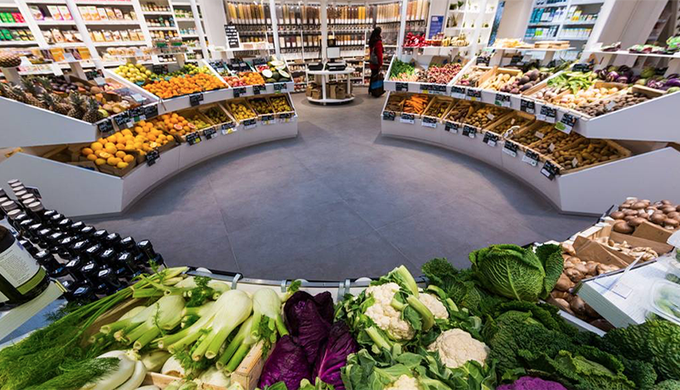


Keep this story going! Share below!
The main business innovation brought by Biocoop is regarding the business model. The innovation is about promoting the local distribution channel. Concretely, they act in that way through four processes which are as follows: forbid genetically modified organisms which will promote the second process which is supporting the local organic agriculture. Consequently, this will reduce the carbon footprint from the production to the selling of the products which will finally be of good quality and fair price. By doing so, products will be accessible to large panel of people.
At the end of the 70’s consumers and producers with the aim at developing a high quality organic consumption decided to gather into cooperatives called Coops. Those committed campaigners have established a charter in which is founded their whole activities and values which have be to followed by members.
The innovation is first related to a sense of purpose. The mission is to promote local distribution channels as well as the production of organic food respectful of the environment and having a business model promoting equity for producers. Secondly, the innovation is related to a sense of meaning which is being transparent and promoting the traceability of products.

In 1986, the association Biocoop was created. His board of directors are made with consumers, producers, employees and shops. In 2002, the association became a cooperative society and in 2017, Biocoop gathers more than 2,700 producers in four channels : fruits and vegetables, meat, milk and cereals and leguminous plants.
In 2017, the very strong activity plus the good management of the fees enabled Biocoop to release a higher profit than the forecasted one. Nonetheless, their vision is to maintain a profit around 1%. Indeed, the cooperative’s goal is not about accumulating profits but rather to offer the fair price with all his actors : customers, suppliers, employees. This approach includes the transfer of 25% of its profits to its collaborators in a bonus
Quotes from the interview:
"Gathering producers, consumers who are sharing the same view was the starting point of Biocoop."
"The idea behind our cooperative society is to give people access to good quality products while providing customers and producers with a fair price."
"Even if Biocoop is a cooperative society, we are trying hard to keep a minimum profit of 1% which is then reinvested in new projects or distributed to employees and collaborators".
Biocoop acts in order to facilitate cooperation with the employees. The cooperative designs common reflexion as a self-fulfillment as well personally as collectively. Thus it allows each other to express his ideas, on each level of the organization.
Biodiversité which means biodiversity in French is the name of the collaborators’ mobilization created in 2017. The goal is to suggest to the Biocoop employees and its subsidiaries to commit in solidarity actions. This program includes 4 sections : construction work solidarity, temporary know-how donation to an organization on a particular mission, mentorship for youth coming from working class in order to help them in the success of their studies and their integration into the world of work and the family solidarity day helping temporary associations partners of Biocoop.
The impact of the innovation on society has been to sensibilize people about responsible consumption in order that everyone can apply it as well as informing and influencing societal choices to make people behave in a better way regarding responsible consumption.
The impact of the innovation on the environment has been beneficial because promoting local distribution channels has permitted to reduce transports. Reducing transports will also reduce the carbon footprint of the company because less CO2 emissions will be released in the atmosphere.
The impact on short-term effect was to provide a new business model and in the same occasion to enter on new market place, a sustainable one. It means that short-term effect was to create sustainable customers behaviour by innovation. Moreover, in long-term effect the main goal was to contribute on sustainable distribution by developing the market share and increase customers knowledge about the group and increase Biocoop shop.
Benefits of this business allow to answer new demands of this market. Customers appreciate this a lot. Their products are traceable and focused on local products.
This business is good for the notoriety of the company.
Biocoop wants also to show other companies how they can change their policies in this environment and how to deal with their suppliers.
For the sake of the environment, local producers allow the reduction of transportation and therefore a decreasing of their carbon footprint.
Get stories of positive business innovations from around the world delivered right to your inbox.
Colette Picard, Manager of Biocoop
